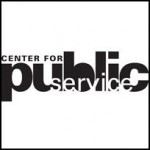Center for Public Service unsure what will happen with Fall Convocation
By Brendan Raleigh, Staff Writer
 Gettysburg’s Fall Convocation, which was scheduled for the afternoon of Nov. 8, was cancelled due to the previous day’s power outage. The call to cancel the event was made by the Campus Emergency Response Team (CERT), as they did not expect that the power would have returned in time to host the assembly in the CUB Ballroom.
Gettysburg’s Fall Convocation, which was scheduled for the afternoon of Nov. 8, was cancelled due to the previous day’s power outage. The call to cancel the event was made by the Campus Emergency Response Team (CERT), as they did not expect that the power would have returned in time to host the assembly in the CUB Ballroom.
According to Kim Davidson, Gettysburg’s Director of the Center for Public Service, the current fate of Fall Convocation remains unknown.
“The Center for Public Service, together with Dean Ramsey and other administrators on campus, will decide if and when we can reschedule [the event],” Davidson said. The decisions will be made at some point later this week.
The rescheduling is the second significant change made to the school’s plans for Fall Convocation, the first being its switch from having Anthony Romero, the executive director of the American Civil Liberties Union, to having Ralph Nader, the former Green Party presidential candidate, as the event’s keynote speaker.
Romero was unable to travel to Gettysburg due to the unfavorable weather experienced across the east coast, so Nader was prepared to take his place the day before Convocation was set to occur. Both Nader and Romero planned to speak about civil rights and social justice, the former of which was seen as relevant in the context of the recent election, and the latter of which has been a common theme throughout most Fall Convocation speeches.
Previous speakers have included various writers, social activists, and politicians including Maya Angelou, Tim Wise, and Douglas Wilder.
In addition to the speech given by the guest speaker, Gettysburg College President Janet Morgan Riggs was set to deliver an introductory speech followed by an invocation from Pastor Joseph Donnella. Two awards would be presented subsequently: the Silent Leader Award and the Faculty Award for Community-Engagement. Dean Julie Ramsay would then make closing remarks.
According to Gettysburg College’s website, Fall Convocation became a yearly event in 1984 in order to address concerns that “the campus did not gather often enough to engage in conversations around current issues.”
Davidson described it as “a venue to discuss social justice and tie larger issues into our lives.”
Should the assembly be canceled indefinitely, it would be the first year since its inception that the school has been unable to host it. While the future of Fall Convocation remains undetermined, Davidson assured that, should the event take place, the speaker will be “a prominent person who can speak about a social justice issue and inspire action” among students and faculty alike.
